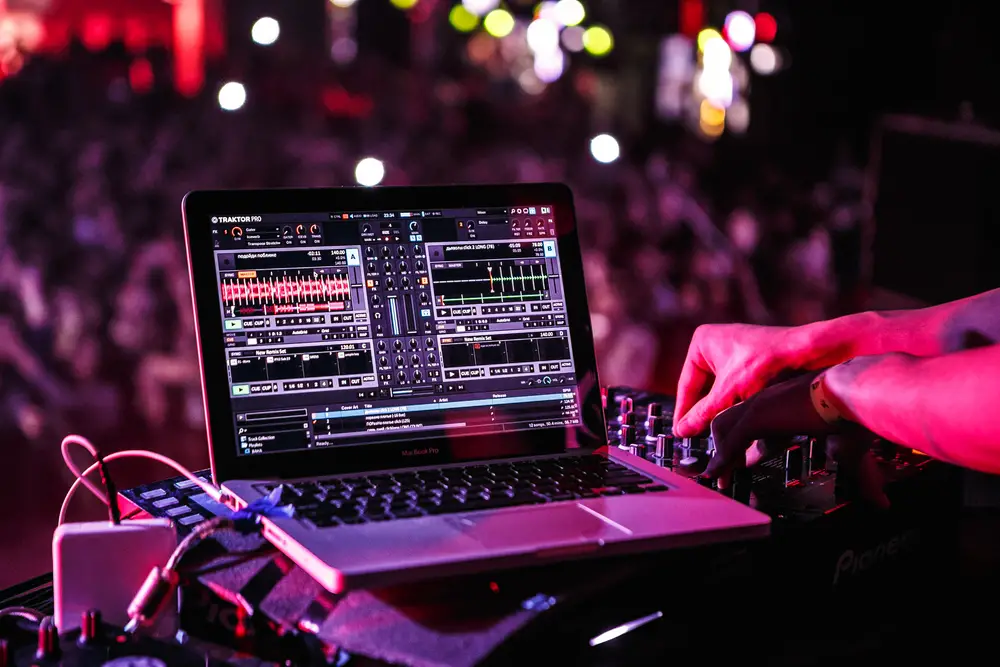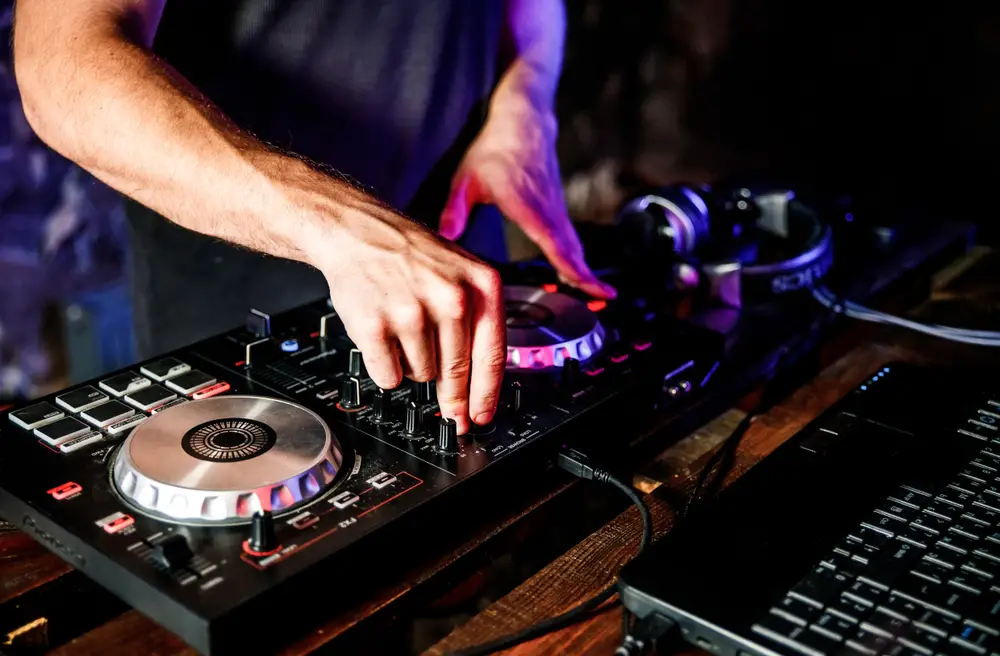Last night a DJ saved your life – and now you want to start a DJ business. That sounds like a great idea! You want to be up on the set, making everybody’s night memorable and entertaining.
Yeah! You want to play some real great tunes! But wait – how do I do this? You’ve got no idea how to start a business. Where do I start? What do I need to plan? How much will it cost?!

Chill. We’ve got this. So take a seat, grab some headphones and read on. DJ – spin it!
Overview: The Things To Consider
Before you set out on the life of a DJ and running the business, you’ll need to consider several things. We’ll break down the thought process for you and elaborate accordingly. So, let’s kick us off with:
What Kind Of DJ Will I Be?
There are various kinds of DJ so you’ll need to think first of what sort of DJ you or your employees will be. Generally, there are five major types of DJ:
- Club
- Music producer
- Mobile
- Turntablist
- Radio
Of course, each one will have its own requirements.
Club DJ
It does what it suggests really. This is a DJ that will work at nightclubs or other similar entertainment venues playing other people’s music, usually to a specific genre.
For example, a dance club will want dance music. A rock and roll bar will want rock and roll. If you’re successful in this role, you can go on to having a regular slot at a club or even being booked to headline an event. Either way, it’s cool!
Requirements: Laptop, music software, headphones, and wifi connection.
Mobile
Arguably the best way to start a DJ business. Mobile DJs travel around the country and often the world to play the music for events. Things such as weddings or birthday parties – you would be the heart of the day.
The DJ will often take requests from the attendees and perhaps play a varied music list. To succeed, you might need to invest in a van to carry the equipment and perhaps design that with your business advertised on it.
Requirements: Laptop, music software, business cards, van, mixer, and speakers.
Music Producer
Perhaps one of the most famous music producers, as an example, is Dr Dre. Music producers will be the artist behind the tune. They might create a hook or track using various instruments or digitally produced sounds.
They might do this for another artist or themselves. Nowadays, there is little need to hire a studio, which would become essential in later years. You can set it up with a laptop and some software!
Requirements: Differs. Laptop, headphones, and software are essential.
Radio DJ
Radio DJs will be the guide of a radio show. They might choose tracks or play sets live at an event. However, it’s more expected for a radio DJ to be the person to link the radio show together and be the voice of the station.
It’s a pretty saturated field and notoriously difficult to break through to. It might be simpler to start at a community radio station for some experience or set up your own podcast.
Requirements: Not too much really. A microphone and laptop for podcasts and training.
Turntablist
Sometimes known as scratch DJs, you’d be expected to go live at events and do some remixes. It’s tough to master this art of using your fingers and wrists etc, to get the scratching just right. Eventually, you might end up in a DMC competition and film your skills.
Requirements: Turntable, records, and a recorder (video and audio.)
Market Research
It’s all well and good deciding you want to be a DJ, but for it to be a financial success, you’ll need to do some research and see if it is viable.
Firstly, is there a market for your business? If your area is predominantly aging with little to no venues – then there may not be a market here for you. You could of course decide to move where it is more viable, but that is extra startup costs.
Secondly, let’s look at the competition. After you’ve decided what type of DJ you want to be, have a look on social media, local services, and search engines to see if there is anyone in the area doing what you want to do.
Can you offer a better alternative? Do you have a USP (unique selling point?) Can you undercut the competition and still be profitable?
This will come into your costing. When deciding if there is a market for your DJ business, you’ll need to think about the funding of course.
Costing And Budget
You’ll need to work out how much money you will need to start the business. Let’s use mobile DJ as an example. You’ll need to account for the laptop, the audio equipment, the van, the advertising, and salaries (nobody works for free!)
After carefully costing your initial amounts, you’ll next need to consider where this money will come from. It’s unlikely that a business starts up without investment or loans – but if you’ve got the money in your savings – great!
So, will a bank give you a business loan? If not – can you get investment from someone? Try Shark Tank!
Either way, remember you’ll need to have some continuity or emergency funds. When loaning or going for investment, consider more than the exact costing to account for the unexpected!
The Legal Stuff
Depending on where you’re starting this business, you’ll still need relevant legal documentation and tax. You’re always better off calling an expert to discuss the requirements for your business idea.
Beware also that this might incur extra costs, so it’s worth keeping some extra cash for this behind. You’ll also need to know the structure – are you going to be working alone? Is this a partnership?
Whatever you decide – good luck with your business! Let’s do this!
We hope you love the products we recommend. We may collect a commission if you purchase through one of our links. This doesn't cost you anything extra. If you do, thank you! As an Amazon Associate, I earn from qualifying purchases.







